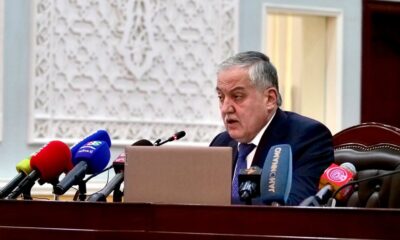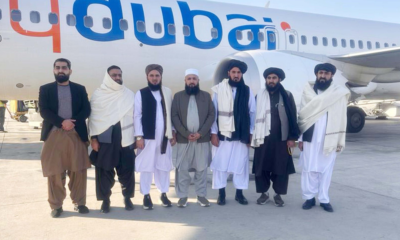Latest News
U.N. aid chief to visit Afghanistan over female aid worker ban
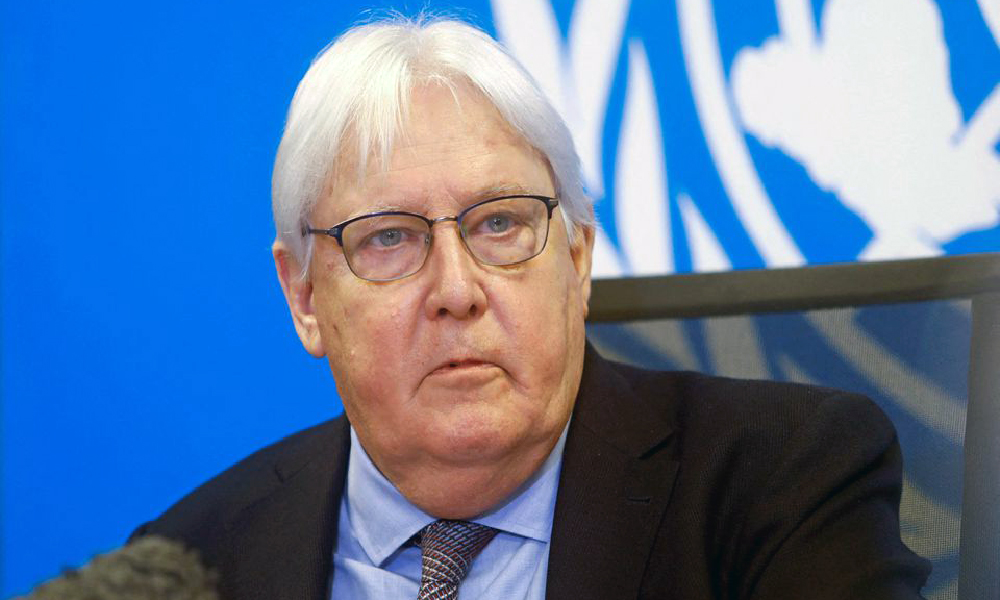
U.N. aid chief Martin Griffiths will visit Afghanistan in the coming weeks and seek to meet the highest possible officials within Islamic Emirate of Afghanistan (IEA), after it banned female aid workers, Reuters quoting a senior U.N. official said on Thursday.
“We regret to see that there is already an impact of this decision on our programs,” Ramiz Alakbarov, U.N. aid coordinator in Afghanistan, told reporters in New York after the United Nations said that some “time-critical” programs had temporarily stopped and other activities will also likely be paused.
He said women made up roughly 30% of aid workers and that they would not be replaced with men. Alakbarov also said the “humanitarian needs of the people are absolutely enormous and it’s important that we continue to stay and deliver.”
The United Nations has said that 97% of Afghans live in poverty, two-thirds of the population need aid to survive and 20 million people face acute hunger, read the report.
Alakbarov said U.N. officials were meeting with ministries to discuss the impact on aid programs and that a meeting with the health minister about the delivery of services for women and girls by female aid workers had been “rather constructive.”
“We already had an agreement with the minister that in that sector there should not be a barrier and the service providers may return to work. Now let’s see how this is going to play out,” Alakbarov said. “The discussions with other line ministers have not yielded the same results yet, but they are ongoing.”
He said he would be focused on talking with the IEA officials to try and get the ban reversed because they responded better to dialogue instead of pressure, adding: “This movement have not responded well to the pressure in the past.”
Alakbarov said that 70% of U.N. programs were implemented in partnership with other aid organizations.
Four major global groups said on Sunday that they were suspending operations because they were unable to run their programs without female staff. Others have since followed suit, Reuters reported.
The ban on female aid workers was announced by IEA on Saturday. It follows a ban imposed last week on women attending universities. Girls were stopped from attending high school in March.
Alakbarov said most of the decrees came from the Shura, or leadership council, in the southern city of Kandahar – the birthplace of the Taliban (IEA) – and if a decree was signed by a minister in the capital Kabul it referenced the Kandahar Shura.
He said there were divisions within the IEA over the bans on women, adding: “It’s also generational. The older generation of IEA is more conservative.
The IEA seized power in August last year. They largely banned education of girls when last in power two decades ago but had said their policies had changed. The IEA has not been recognized internationally.
Latest News
Tajik foreign minister urges international community to help Afghanistan address its challenges

Tajikistan’s Minister of Foreign Affairs, Sirodjiddin Mukhriddin, has called on the international community to step up assistance for Afghanistan as the country continues to face challenges.
Speaking at a press conference, Mukhriddin said Tajikistan and Afghanistan maintain active coordination between their law enforcement agencies to prevent security incidents along their shared border. He noted that this cooperation remains essential, as the frequency of armed attacks and criminal activity in border regions has increased in recent months.
He said that Afghan authorities had assured Tajikistan they would take necessary measures to stop further incidents and would conduct thorough investigations into any violations.
Mukhriddin emphasized that Tajikistan supports constructive international engagement aimed at improving Afghanistan’s socio-economic conditions. He highlighted that Tajikistan has provided more than 6,000 tons of humanitarian aid to Afghanistan, including food and essential supplies delivered in 2025 to assist communities affected by devastating earthquakes.
The minister also pointed to growing economic cooperation between the two neighbors. Tajikistan has reopened border markets and continues to supply electricity to Afghanistan.
Tajikistan and Afghanistan share a border of more than 1,300 kilometers—over 1,100 km of which consists of waterways and about 190 km of land boundaries.
Meanwhile, Zafar Samad Director of the Drug Control Agency under the President of the Republic of Tajikistan, has said that last year, 17 incidents of clashes happened with drug smugglers along the border with Afghanistan. As a result, two Tajik forces and 10 Afghan nationals have been killed, he added.
Latest News
Baradar: Afghanistan is not an easy target, but a ‘bitter tree’

Mullah Abdul Ghani Baradar, Deputy Prime Minister for Economic Affairs, warned during a graduation ceremony for soldiers of the Ministry of National Defense that the Islamic Emirate will respond decisively to anyone with ill intentions toward Afghanistan.
He said the country is “not an easy target, but a bitter tree that has made the throats of empires bitter and newborns can never digest.”
Baradar also announced that in the coming days, the Islamic Emirate will introduce tax exemptions of one to five years for domestic and foreign investors, based on the level of investment in new sectors. He also said that the process of distribution of land to manufacturers will be accelerated.
Baradar called on countries to engage in political and economic relations according to the values and principles of the Islamic Emirate, emphasizing that energy and resources spent on conflict would be better used to support one another and strengthen common interests.
Latest News
Fourteen former Afghan government forces killed in last three months of 2025: UNAMA
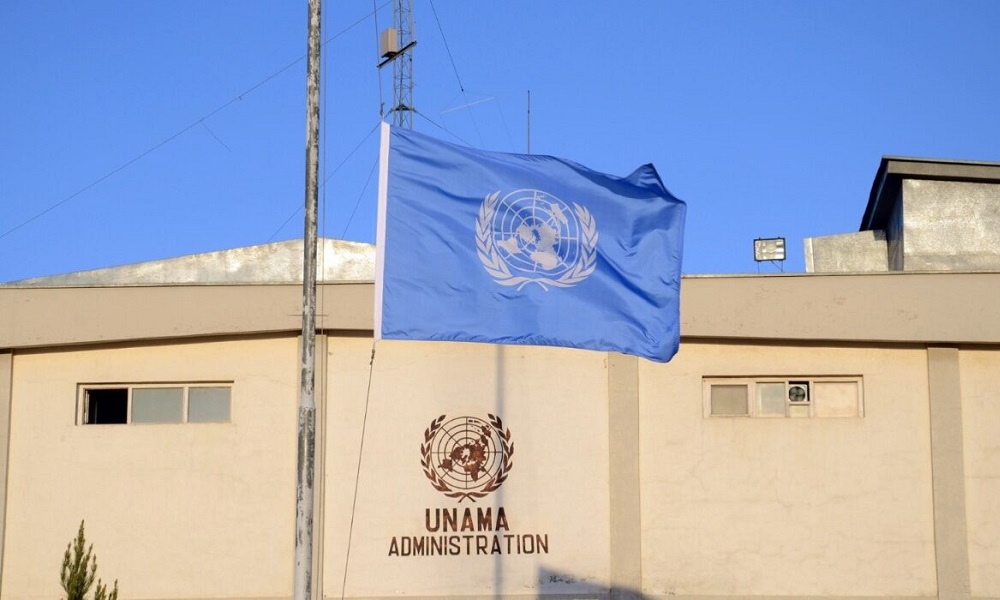
The United Nations Assistance Mission in Afghanistan (UNAMA), in its latest report on the human rights situation in Afghanistan, stated that 14 members of the former Afghan government forces were killed in the last three months of 2025.
The report noted that during this period, there were 28 cases of arbitrary arrest and detention, and at least seven cases of torture and ill-treatment targeting officials and personnel of the former Afghan government.
According to the report, some of the officials and forces who had recently returned to Afghanistan from Iran and Pakistan were among those subjected to extrajudicial killings, arbitrary arrests, and detentions.
The report also highlighted restrictions on women’s work and movement, executions and flogging of individuals, and disruptions to internet and telecommunications services.
-

 Sport5 days ago
Sport5 days agoHosts and heavyweights advance as AFC Futsal Asian Cup reaches semifinals
-

 Latest News4 days ago
Latest News4 days agoTerrorist threat in Afghanistan must be taken seriously, China tells UNSC
-

 Latest News5 days ago
Latest News5 days agoUzbekistan, Pakistan advance Trans-Afghan railway project
-

 Latest News2 days ago
Latest News2 days agoAfghanistan to grant one- to ten-year residency to foreign investors
-

 Sport5 days ago
Sport5 days agoWinter Olympics finally underway, ATN to broadcast exclusively across Afghanistan
-
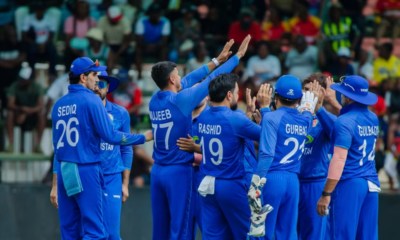
 Sport5 days ago
Sport5 days agoAfghanistan beat West Indies in final T20 WC warm-up match
-

 Sport3 days ago
Sport3 days agoIndonesia shock Japan to reach historic AFC Futsal Asian Cup final
-
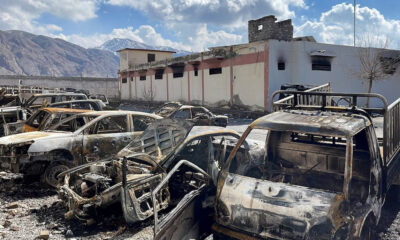
 Regional5 days ago
Regional5 days agoPakistan sends helicopters, drones to end desert standoff; 58 dead




